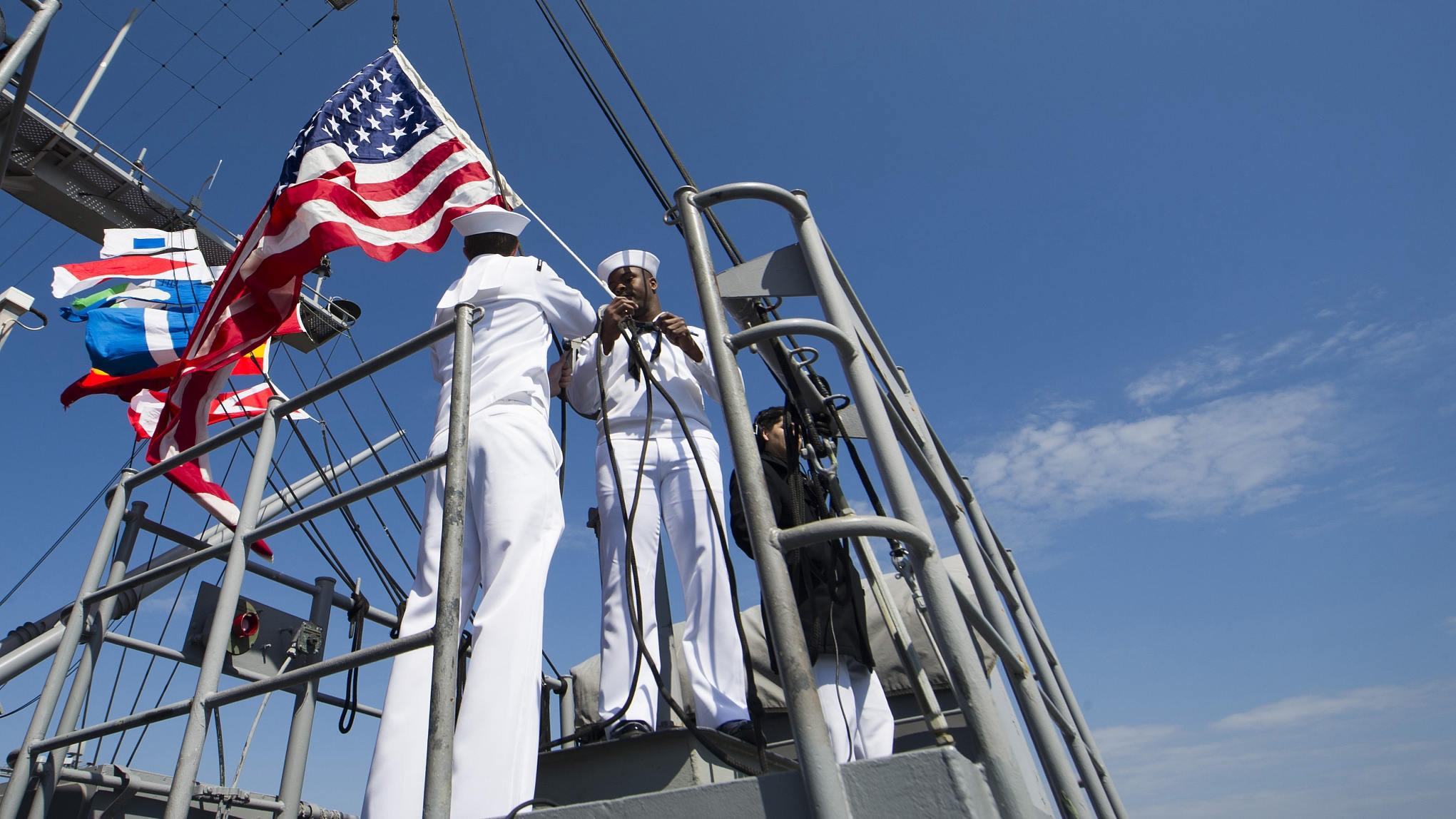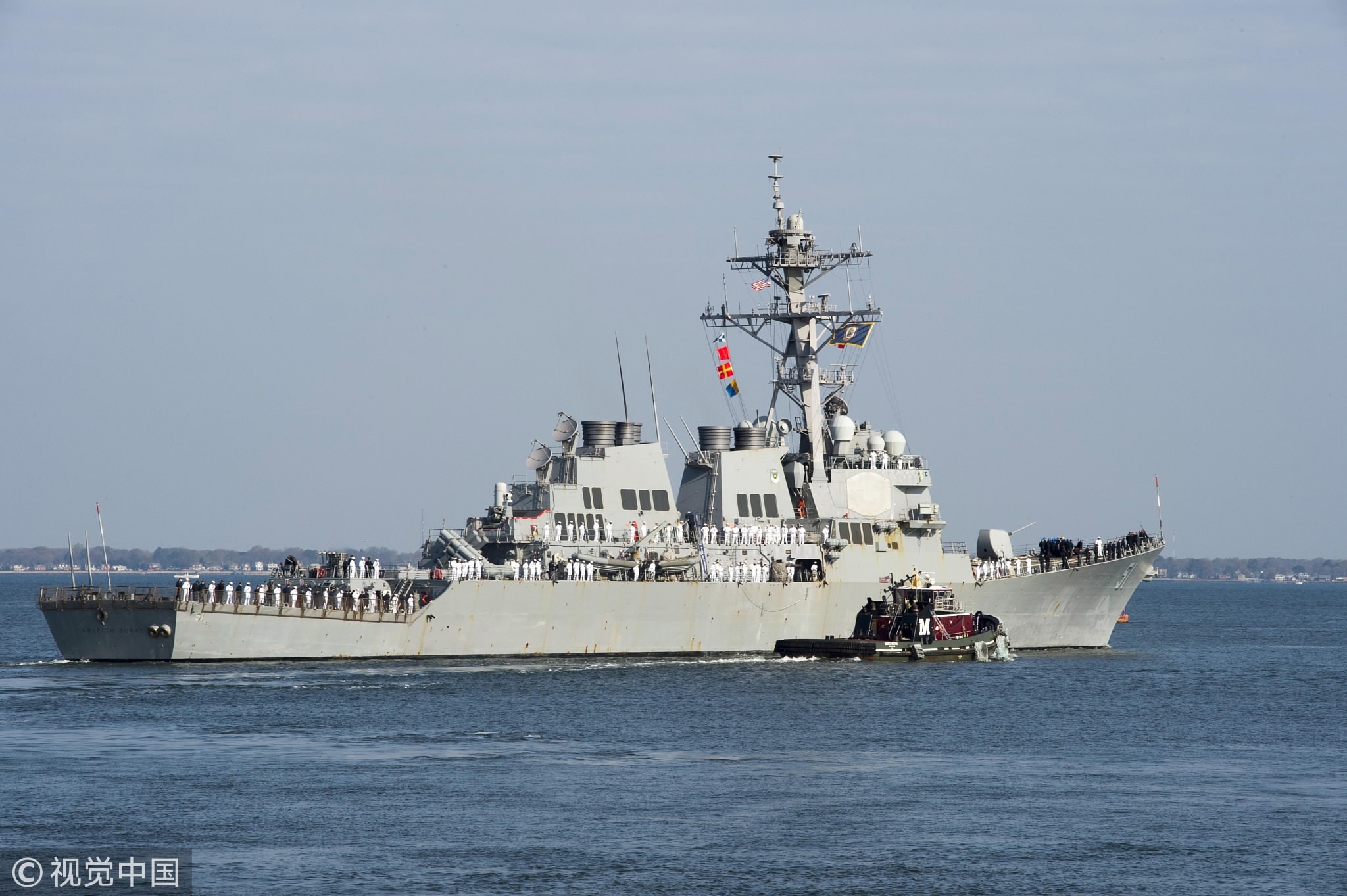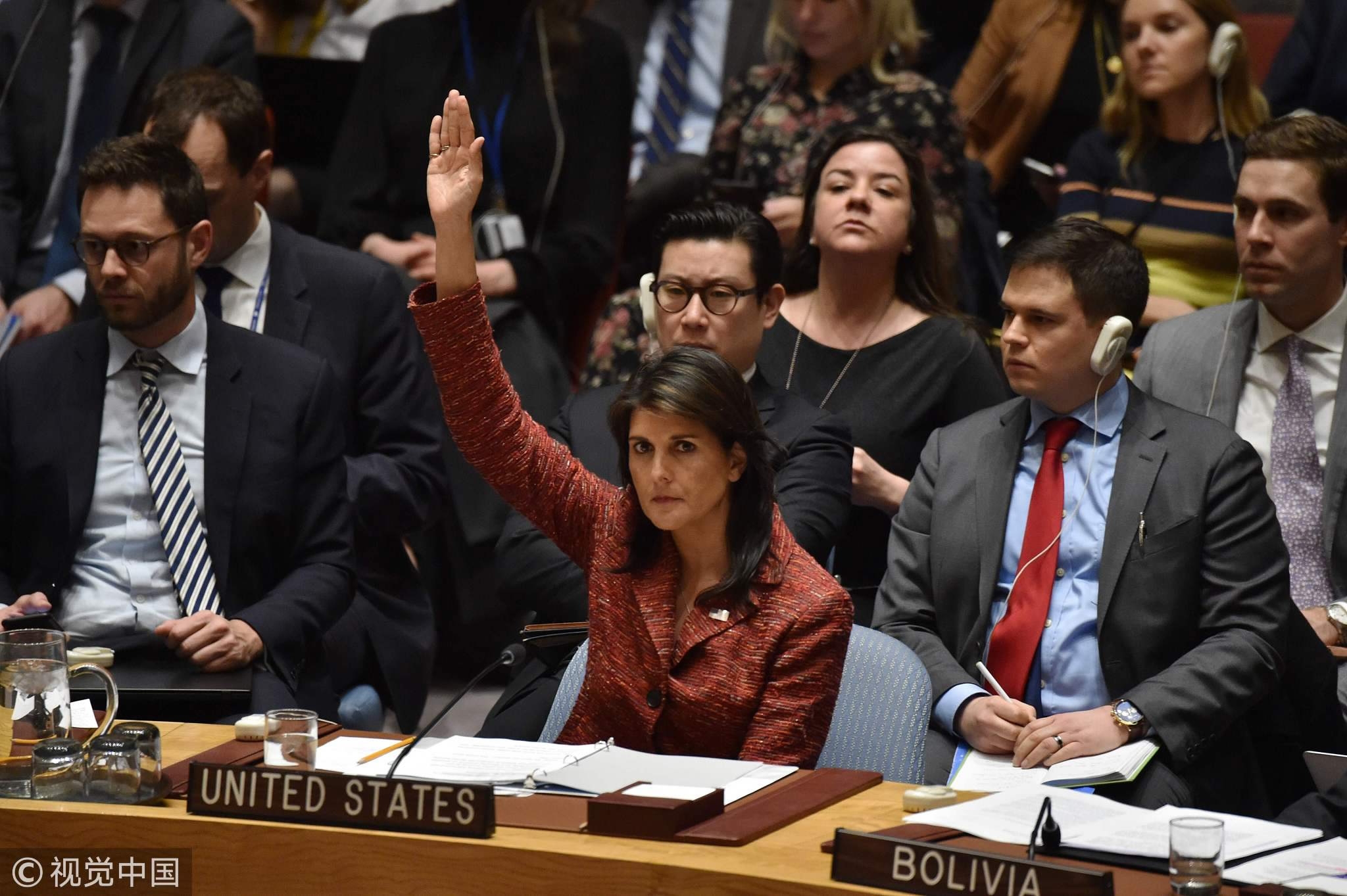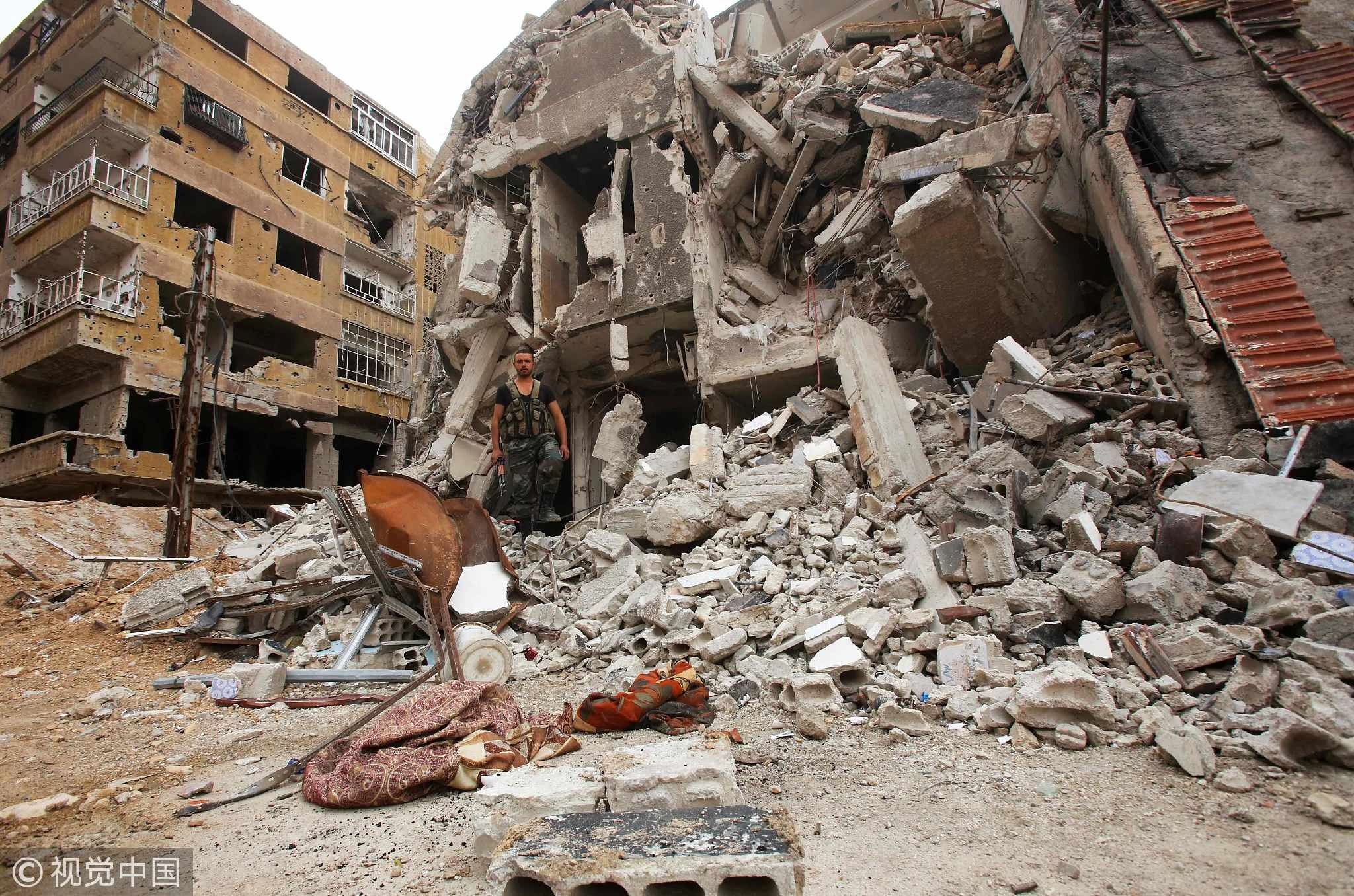
(Photo: VCG)
Although the US has recently changed its tone regarding a potential military attack in Syria, the threat of military action still seems to linger in the minds of US leaders.
And, naturally, officials in Damascus are quite concerned.
Many of those I spoked to in the Syrian capital recall a similar situation back in 2013.
Under former President Barak Obama’s administration, the US had threatened to retaliate against Syria on the basis of an assumed chemical weapons attack in eastern Ghouta. The Russians, among others, then warned Damascus that they should have every reason to be worried.
Syria then offered to give up its entire arsenal of chemical weapons in an effort to douse the fire.

The guided-missile destroyer USS Arleigh Burke (DDG-51) departs Naval Station Norfolk as part of the Harry S. Truman Carrier Strike Group. About 6,500 sailors assigned to the Harry S. Truman Carrier Strike Group are departing Norfolk on April 11, 2018 for a deployment to Europe and the Middle East.(Photo: VCG)
But many don't see that happening again, for many reasons.
For one thing, US President Donald Trump is no Obama. And for another, the Syrian government has nothing in stock to exchange, which means the situation may be as serious as it appears.
The military and security concern of a potential attack against Syria is growing.
Russia’s ambassador to Lebanon Alexander Zasypkin, commenting on the US threats, told Hezbollah’s Al-Manar TV on Wednesday that “the Russian forces will confront any US aggression on Syria, by intercepting the missiles and striking their launch pads.”
The response from Washington came fast, and from Trump himself. He tweeted, "Russia vows to shoot down any and all missiles fired at Syria. Get ready Russia, because they will be coming, nice and new and 'smart'!”

US ambassador to the United Nations, Nikki Haley (C) votes in favor to create an investigation of the use of weapons in Syria, at United Nations Headquarters in New York, on April 10, 2018.(Photo: VCG)
This led to another official Russian reaction reminding the US president that “smart missiles” should be targeting terrorists, not the Syrian government.
This narrative, many say, is reminiscent of the Cold War. And the fear of a collision between the two super powers has become tangible.
Russians are reportedly living in most of the important army headquarters and air bases in Syria, sometimes as civilian contractors and sometimes as members of Russia’s armed forces.
That puts them at risk and shatters the idea that these Western threats can be resolved with an isolated attack on Syria.
The Iranians on Syrian bases have already been targeted by Israeli missiles more than once, the latest attack occurring this week.
Both Iran and Russia will probably consider retaliating to these attacks, but in their own ways, leading to proxy wars around the world.
Still, the repercussions of a very possible military confrontation between Moscow and Washington in Syria could be huge and would divide the world – possibly starting a new era of international relations based on Cold War elements, and discarding the idea of working together toward world peace.

A Syrian government forces soldier walks over the rubble of buildings in the former rebel-held town of Zamalka in eastern Ghouta, on the outskirts of the capital Damascus on April 11, 2018. (Photo: VCG)
But before anticipating something this broad, there is another local fear related to the Western threats led by Trump.
The fear is that the Syrian areas that have been liberated could again be put at risk.
Anticipating the strike, the Syrian army has changed its defense tactics, which could lead to some weak defense points in certain areas, some of which – like southern Ghouta – are very close to Damascus. Others, such as the ISIL-controlled Al-Yarmouk neighborhood, are even inside the city.
Other areas near Aleppo, in Hama and in the south close to the Jordanian border, also share the same risks.
This all happens, of course, while the UN and its Security Council remain incapable of implementing a strategy to end the Syrian conflict in a just and neutral way, sealing it from bigger disasters.
Damascus has always accused the UN of being biased against it, and has asked for it to reform in a manner that would allow less Western influence, mainly from the US, on its international conflict policies.


